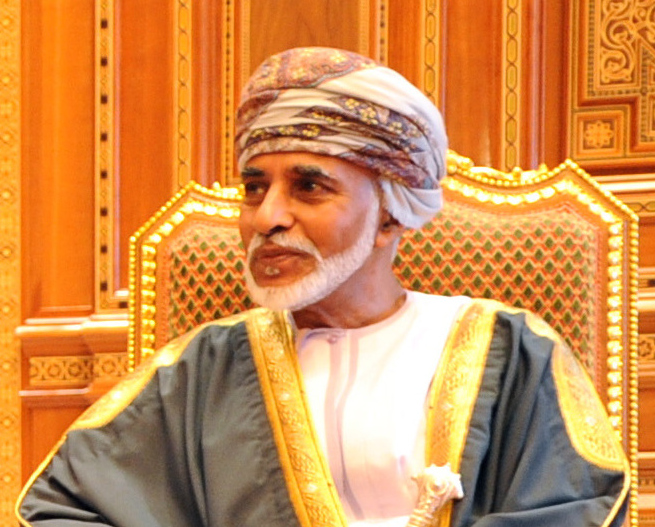Sultan des Oman ist tot

(Sultan Qaboos bin Said, Quelle: Wikipedia)
Fast fünfzig Jahre hat er im Oman regiert, Sultan Qaboos bin Said und nun ist er nach langer Krankheit verstorben. Er hinterließ keine direkte Nachkommen und seit Jahren sorgen sich viele Menschen im Oman, was mit ihrem Land nun geschehen wird. Bin Said herrschte mit harter Hand, ging mit aller Härte gegen Dissidenten und Oppositionelle vor aber garantierte zugleich etwas, was im Nahen Osten bis heute so hoch im Kurs steht: Stabilität. Auch wenn es 2011 im Oman zu einigen Demonstrationen kam, blieb das Land in der letzten Dekade weitgehend ruhig, mit viel diplomatischem Aufwand versuchte der Sultan außerdem eine Art Neutralität im saudisch-iranischen Konflikt zu bewahren.
Was nun kommen wird, ist völlig unklar. Immerhin konnte die Nachfolge relativ schnell geregelt werden:
While the decisive and speedy nature of the transition from Qaboos to Haitham belied external observers’ concern for the opacity of the succession process, the new sultan will inevitably find it a challenge to replicate the charismatic political authority that Qaboos enjoyed as the "father of the nation." In constructing an Omani narrative so closely bound with his own legacy of leadership, the visibility of the process of naming Haitham as sultan is an attempt to imbue the new sultan with immediate legitimacy as Qaboos’ choice of heir. Yet, at some point, and perhaps sooner rather than later, Haitham is likely to face many of the same economic challenges that built up in the final years of Qaboos’ rule, and without the protective veneer of untouchability that most all Omanis attached to Qaboos. Public anger over sluggish economic performance and perceptions of corruption triggered protests in 2011, during the Arab Spring, and may yet do so again. The fact that Haitham was himself an active businessman, and associated with Blue City, a failed mega-project controversially bought out by the state after it ran into difficulties in 2012, may also make it harder for him to remain above the fray if tensions ever rise.
In regional affairs, Haitham immediately pledged to follow Qaboos’ policy of peaceful coexistence with all nations and commitment to good neighborliness. Oman’s longstanding refusal to pick sides or get involved in regional conflicts and standoffs enabled Qaboos to carve a reputation as a facilitator able to pass messages and create the conditions for dialogue between adversaries such as the United States and Iran, between 2011 and 2013 and, in 2019, between Saudi officials and Houthi representatives. Omani facilitation was crucial in enabling the talks that grew into the P5+1 negotiation with Iran and culminated in the Joint Comprehensive Plan of Action (JCPOA) in 2015. It is a sad irony that the final days of Qaboos’ life were marked by the spiraling of tensions between the United States and Iran after President Donald Trump withdrew the United States from the JCPOA in 2018 and initiated an ill-thought-out "maximum pressure" campaign intended to further isolate and squeeze Iran.